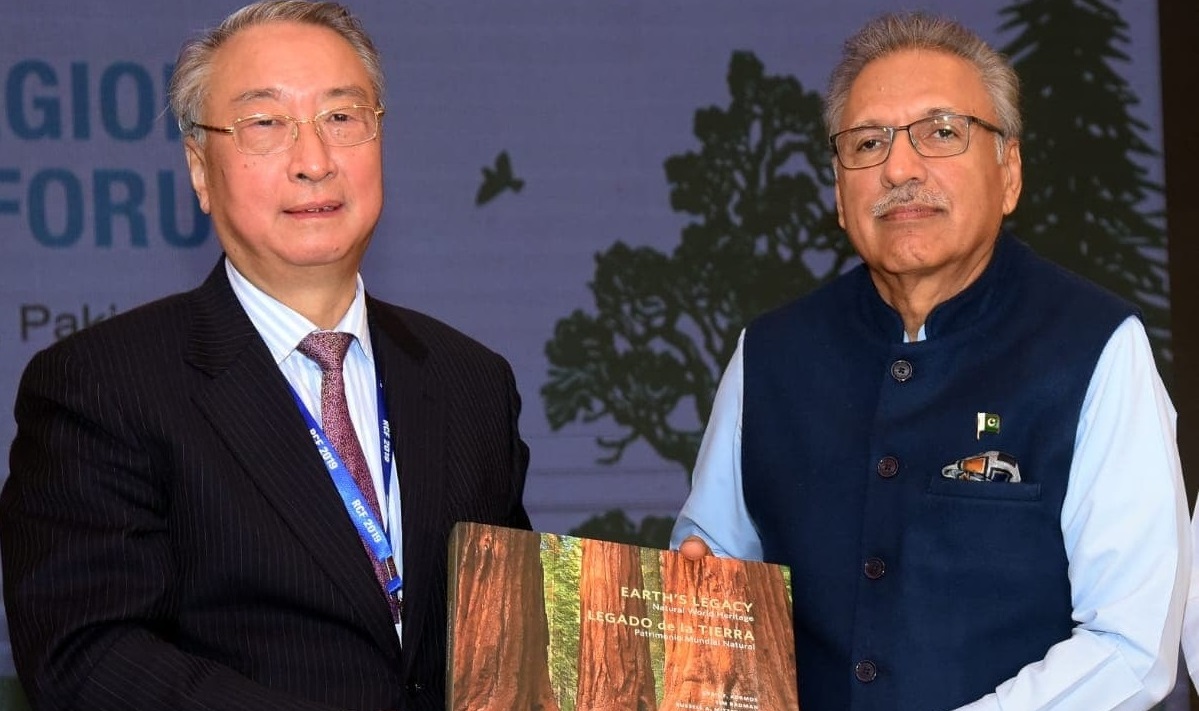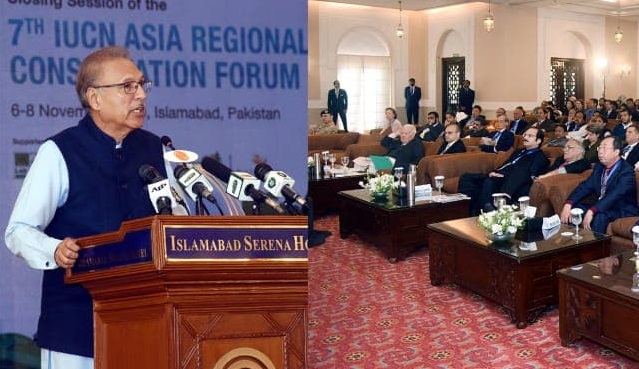Largest regional conservation forum: Nature-based solutions key to securing Asia’s future
Islamabad, Pakistan, 8 November 2019 — At the closing of the 7th IUCN Asia Regional Conservation Forum held in Islamabad, Pakistan, IUCN urged governments, NGOs and the private sector to adopt nature-based solutions to address environment and development challenges in order to secure the future of Asia.
“With over 550 participants from 25 countries, this RCF has been the largest ever – not just in Asia but the rest of the world as well,” said IUCN Asia Regional Director and Director of the IUCN Regional Hub for Asia and Oceania Aban Marker Kabraji. “With all the rich discussions and interactions, I believe the region is now more prepared than ever to contribute to the discussions at the IUCN World Conservation Congress in Marseille, next June.”
The forum provided a platform for leaders from all sectors of society to discuss nature-based solutions to environmental, economic, and social challenges in Asia. Under the theme of “Greening Asia for Nature and People”, the forum explored issues, emerging trends, challenges and solutions on themes such as land, water, oceans, climate change mitigation and adaptation and equitable governance of natural resources and how they relate to IUCN’s work.
Co-hosted by the Ministry of Climate Change of the Government of Pakistan, it brought together more than500 delegates from governments, NGOs, research and academic institutions and the private sector from 25 countries in Asia and beyond.
The forum is where IUCN Members in Asia come together to convene on Asia’s contributions and commitments to the World Conservation Congress in 2020. This membership includes 15 State Members in Asia, among them the Government of Pakistan.
The World Conservation Congress, the global meeting of more than 1,400 IUCN Members worldwide (which includes 90 State Members), is the world’s leading platform for creating change for conservation and sustainable development. It will take place in June 2020 in Marseille, France and will bring together thousands of people from around the world, from all sectors, who are interested in conservation issues.
“With the recent developments on free trade – which demonstrates Asia’s growing influence on the word, and the upcoming large-scale conservation events next year, such as the CBD CoP 15 in Kunming and the IUCN World Conservation Congress in Marseille, I would like to emphasise that this Asia Regional Conservation Forum could not come at a better timing. This Asia RCF is not just important for IUCN, but also for the wider conservation community and for the rest of the world”, said IUCN President Zhang Xinsheng.
“World leaders and relevant stakeholders have important role to play in sensitizing their nations on environmental issues, including reducing consumerism and pollution”, said Dr Arif Alvi, President of Pakistan.
“We need to be steadfast in developing solutions to make both conservation and development thrive. This is why we at IUCN is strongly committed to making nature conservation an integral part of development. Asia will lead us in the next development phase of the world and we want to see economies, cities and nature thriving together.” said Dr Grethel Aguilar, IUCN Acting Director General. “We have been inspired by events that show the intrinsic links between nature and people. The insights gleaned from the discussions and input of our 268 IUCN Members in the region will play a key role as we move towards the IUCN Congress next June.”
Discussions from the Asia Regional Conservation Forum will help shape conservation action for the next decade, as it will feed into the IUCN World Conservation Congress, which will be held in Marseille, France in June 2020.
About the Asia Regional Conservation Forum
The Asia Regional Conservation Forum is IUCN’s meeting of Members in Asia. Held every four years, the Forum addresses biodiversity and ecosystem challenges and sets the region’s conservation agenda.
Leaders and decision-makers from government, civil society, business and academia will assemble to share experiences, debate and decide how we manage our natural environment for social and economic development. The first Asia Regional Conservation Forum was held in 1998 in Kota Kinabalu, Sabah, Malaysia; Delhi, India in 2000; Colombo, Sri Lanka in 2003; 2007 in Kathmandu, Nepal; 2011 in Incheon, Republic of Korea; and 2015 in Bangkok, Thailand.


